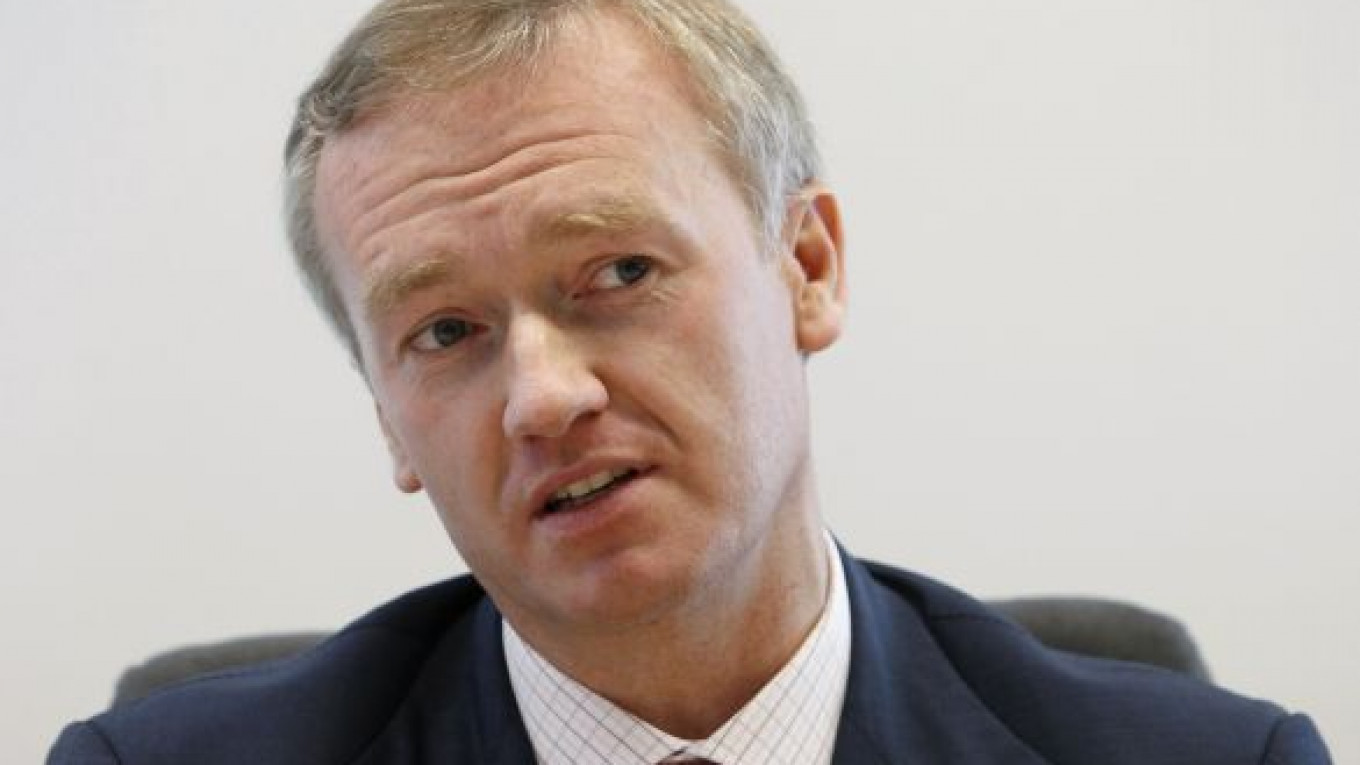The Russian Foreign Ministry warned Tuesday that detention of the chief executive of potash giant Uralkali in Minsk could cause Moscow's relations with Belarus to deteriorate as the conflict takes on political overtones.
Putting Vladislav Baumgertner in a pretrial detention facility is "unacceptable" and "doesn't comply with friendly relations between our countries," the ministry said in a statement. The move by the Belarussian authorities could lead to a negative effect on relations between Russia and Belarus "on political level," the statement said, RIA Novosti reported.
Baumgertner became a pawn in the political game of the Belarus authorities, since the country's President Alexander Lukashenko apparently orchestrated his detention, said Alexander Klaskovsky, a Minsk-based political analyst.
Lukashenko saw Uralkali's decision last month to quit from Belarussian Potash Company — its joint venture with Belaruskali — as a direct threat to the economic stability of his country, the expert said.
So detention of a high-profile Russian businessman is a clear signal to the Kremlin that Belarus is ready for tough measures to protect its interests, especially in the light of Russia's push for launching the Eurasian Economic Union in 2015 — which makes no sense without the Belarus partner, Klaskovsky said.
He also suggested the conflict could escalate and drag on further.
Russia's ambassador in the former Soviet republic, Alexander Surikov, met with Belarussian authorities on Tuesday to lobby for the businessman's release during a 30-minute visit to the Prosecutor Generals Office, a spokesman for the agency told Interfax. Surikov "expressed his doubt about the legitimacy of Baumgertner's detention" and was informed that his application would be considered in accordance with existing legislation, the spokesman added.
Baumgertner, was detained Monday for a period of two months and faces a prison term of three to 10 years on suspicion of abusing his position and official power. He will not be allowed to choose a Russian lawyer to defend him, since Belarussian legislation bans foreigners from acting as defense lawyers in local courts.
The businessman will get local legal defense, with a Russian lawyer being able to provide consultation, Interfax reported, citing a representative of the Minsk Bar Association. It remained unclear Tuesday who would be appointed to defend Baumgertner.
The Belarus Investigative Committee said Interpol had also sanctioned detention of four senior executives of the Belarussian Potash Company who represented Uralkali's interests in the defunct joint venture. Minsk had earlier put them on the international wanted list.
"We are indignant with the actions on the Belarus side," an Uralkali's spokesman told Vedomosti, adding that placing the other managers on the Interpol wanted list is an "indication of the economic weakness of the former Belarus partners and a power game."
Baumgertner's abrupt detention raised eyebrows and spurred harsh criticism from the Russian government. The businessman was departing from Minsk after a meeting with Belarus Prime Minister Mikhail Myasnikovich, who had invited Baumgertner for talks.
Deputy Economic Development Minister Andrei Klepach expressed hope Tuesday that Moscow would respond to the Uralkali chief's detention with adequate measures.
The situation around the potash giant puts Belarus' hopes to agree on the terms of oil supplies with Russia for the end of this year and 2014 in jeopardy, Klaskovsky suggested. Negotiations are slated for September.
Another possible sanction might be a block by Russia of the last tranche of the $3 billion loan to be provided to Belarus by the anti-crisis fund of the Eurasian Economic Community later this year, he added.
The Belarus cabinet distanced itself from the situation, saying it would not comment on Baumgertner's detention. "The situation is fully in the competence of the law enforcement and investigation agencies at the moment," spokeswoman for the country's cabinet Olga Dolgaya told Interfax.
Meanwhile the country's Foreign Ministry called for the Russian authorities not to link situation to politics, claiming that the criminal case against the businessman had been opened based on a "legal assessment of his actions."
Contact the author at irina.filatova@imedia.ru
A Message from The Moscow Times:
Dear readers,
We are facing unprecedented challenges. Russia's Prosecutor General's Office has designated The Moscow Times as an "undesirable" organization, criminalizing our work and putting our staff at risk of prosecution. This follows our earlier unjust labeling as a "foreign agent."
These actions are direct attempts to silence independent journalism in Russia. The authorities claim our work "discredits the decisions of the Russian leadership." We see things differently: we strive to provide accurate, unbiased reporting on Russia.
We, the journalists of The Moscow Times, refuse to be silenced. But to continue our work, we need your help.
Your support, no matter how small, makes a world of difference. If you can, please support us monthly starting from just $2. It's quick to set up, and every contribution makes a significant impact.
By supporting The Moscow Times, you're defending open, independent journalism in the face of repression. Thank you for standing with us.
Remind me later.






